
Blog.
Most Recent Posts
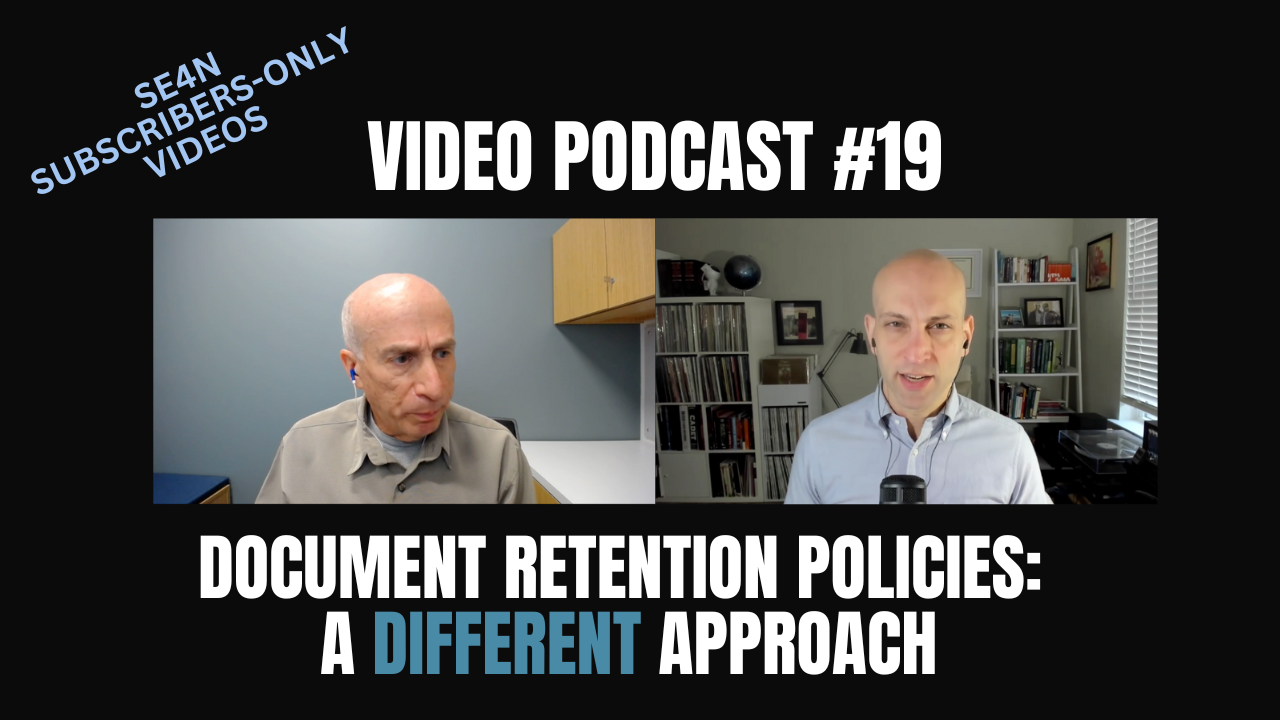
Video Podcast: Making Document Retention and Destruction Policies Less Burdensome
Ben and Mike discuss document retention and destruction policies, the reasons why many common basic templates are very burdensome and lead to inconsistent implementation and other problems, the different approach we use in our policy template, considerations relating to electronic storage, and more.

VIDEO Q&A for Subscribers: June 2025
Ben and Mike answer questions from subscribers about preparing to serve on a nonprofit Board of Directors, the pros and cons of group exemptions, mitigating auditor concerns about pledges receivable, and whether the rationale for a Board member's dissenting vote should be included in Board meeting minutes.
![TEMPLATE: Document Retention and Destruction Policy [SUBSCRIBERS-ONLY]](https://images.squarespace-cdn.com/content/v1/5e6ccadfb4659c1d51df14d5/564fea5e-4ef8-495c-8b27-5528219c0eaf/shredder-779850_1920.jpg)
TEMPLATE: Document Retention and Destruction Policy [SUBSCRIBERS-ONLY]
This Document Retention and Destruction Policy template is intended to help your nonprofit organization ensure compliance with the Sarbanes-Oxley Act and other applicable record-keeping laws, and to avoid inadvertent destruction of important organizational records. Unlike many other document retention and destruction policies (sometimes called “record retention policies”) that specify difficult-to-track holding periods (3 years, 7 years, 10 years, etc.) for specific categories of documents, this template uses a more flexible approach that aims to minimize administrative and operational burdens while addressing key compliance issues.

Video Podcast: Using Funding Pipeline Reports to Navigate Financial Disruptions
Ben and Mike discuss the challenges of planning in a period of financial instability and how funding pipeline reports can help nonprofit organizations document real-time information affecting funding plans, provide a framework for assessing the reliability of future funding sources, fill in gaps not covered by financial reports, and more.

VIDEO Q&A for Subscribers: May 2025
Ben and Mike answer questions from subscribers about the role of legal counsel in leading updates to an organization’s employee handbook, the best time to start planning for the end of an office lease, transitioning from fiscal sponsorship to becoming an independent 501(c)(3) nonprofit organization, and whether it’s a good idea to promote a staff bookkeeper or accountant to controller, director of finance, or CFO.
![TEMPLATE: Whistleblower Policy [SUBSCRIBERS-ONLY]](https://images.squarespace-cdn.com/content/v1/5e6ccadfb4659c1d51df14d5/64a1a459-1737-4c60-aa99-12b3096042fd/pexels-eva-bronzini-7965294.jpg)
TEMPLATE: Whistleblower Policy [SUBSCRIBERS-ONLY]
This Whistleblower Policy template is intended to help your nonprofit organization establish a process for Board members, staff, and others to report potential violations internally in good faith without fear of retaliation. This sample document includes basic language addressing the mechanism for reporting and investigating whistleblower claims, the prohibition on retaliation, and other provisions to help ensure compliance with the Sarbanes-Oxley Act and demonstrate your organization’s commitment to transparency, accountability, and good governance.

Video Podcast: Common Nonprofit Fiduciary Duty Issues
Ben and Mike discuss the fiduciary duties that apply to the Board of Directors of a nonprofit organization, with a focus on how to apply the duty of care, duty of loyalty, and duty of obedience to issues and examples that arise frequently for nonprofits, such as delegating matters to experts and committees, navigating conflicts of interest and serving on multiple Boards, the corporate opportunity doctrine, and more.

VIDEO Q&A for Subscribers: April 2025
Ben and Mike answer questions from subscribers about the potential consequences of having 501(c)(3) tax-exempt status revoked, whether a mid-year amendment to the budget should be made if an organization’s federal grants have been terminated, tax forms and disclosures required when hiring foreign contractors, and what to do when a project must be stopped in the middle of a capital campaign.
![TEMPLATE: Volunteer Services Agreement [SUBSCRIBERS-ONLY]](https://images.squarespace-cdn.com/content/v1/5e6ccadfb4659c1d51df14d5/cf86301c-0767-4b3f-ae10-57aba7c3311f/pexels-rdne-6647113.jpg)
TEMPLATE: Volunteer Services Agreement [SUBSCRIBERS-ONLY]
This template volunteer service agreement provides basic terms and conditions that are generally recommended for nonprofit organizations when using volunteer services. This sample document covers areas such as thanking the volunteer for their service, clarifying that compensation is not owed, waiver of liability / release language, confidentiality, use of the volunteer’s name, image, and likeness, intellectual property ownership, and more.

Video Podcast: The Purposes and Roles of the Audit Committee
Ben and Mike discuss why nonprofit organizations have audit committees, their traditional role throughout the annual audit process, the importance of the Board's perception of an audit committee's purposes, how the independence of the audit committee can serve nonprofits in expanded ways, and more.
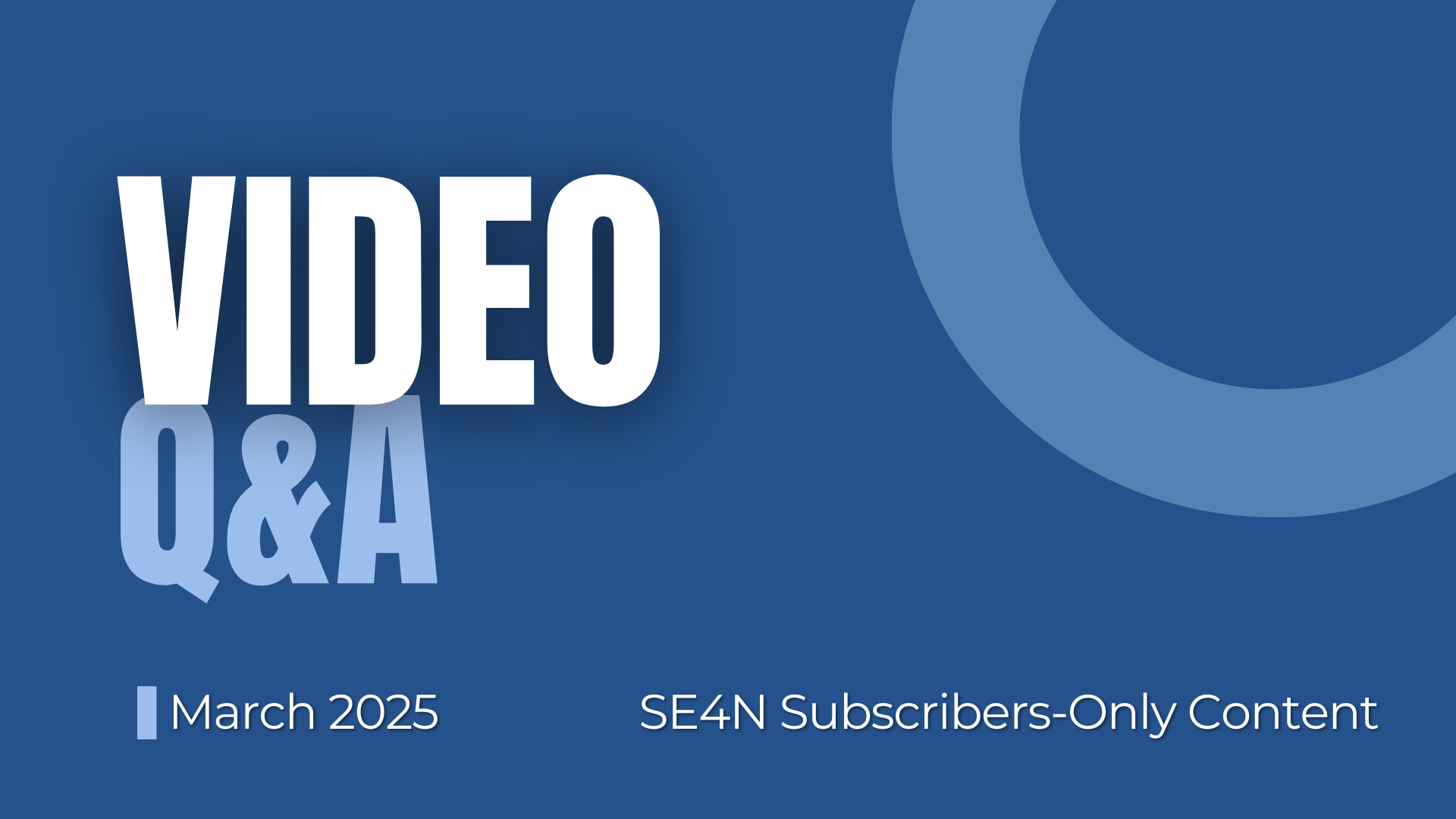
VIDEO Q&A for Subscribers: March 2025
Ben and Mike answer questions from subscribers about record-keeping and document retention practices, using LLCs to limit liability risk in a fiscal sponsorship, disclosure of committee meeting minutes as part of the audit process, whether abstaining Board are counted for purposes of satisfying unanimous written consent procedures, and whether a quarterly Board meeting can be delayed into a subsequent quarter.
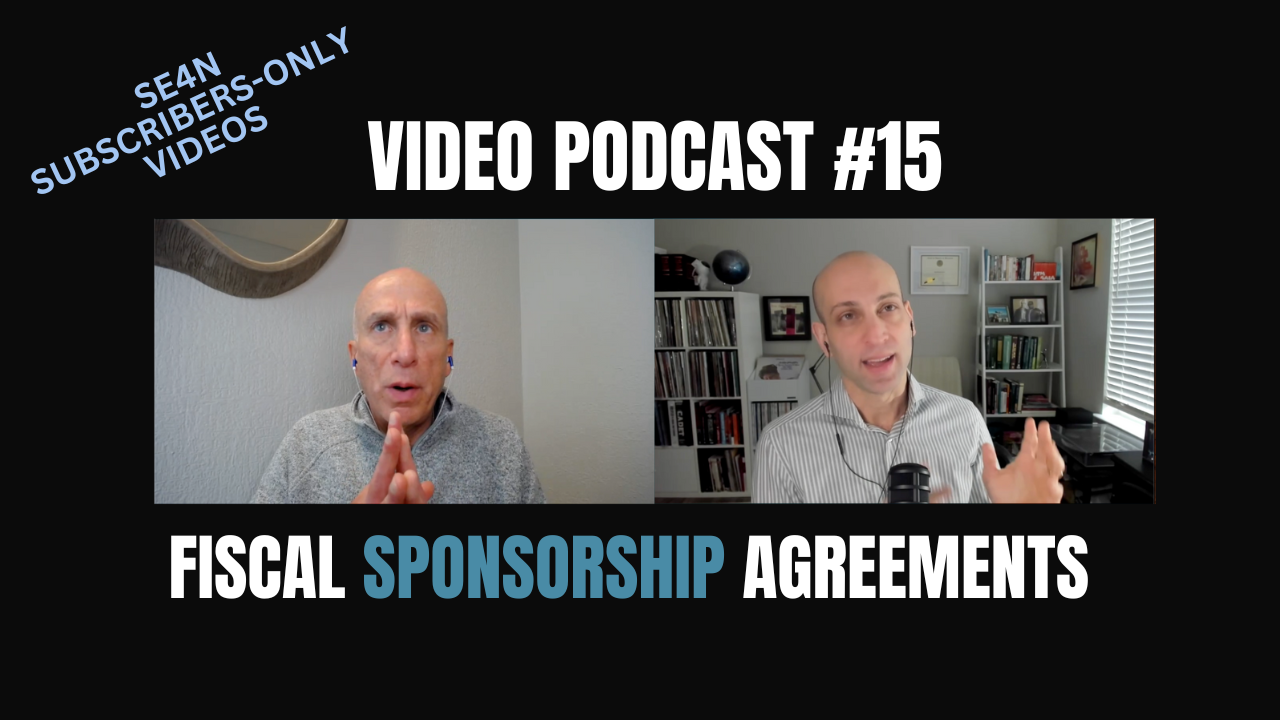
VIDEO PODCAST: The Basics of Fiscal Sponsorship Agreements
Ben and Mike discuss fiscal core concepts to understand the fiscal sponsor relationship and fiscal sponsorship agreements, including the distinction between Model A, Model B, and Model C fiscal sponsorship, key provisions that are found in all types of fiscal sponsorship agreements, and other considerations to have in mind when drafting or negotiating a fiscal sponsorship agreement.
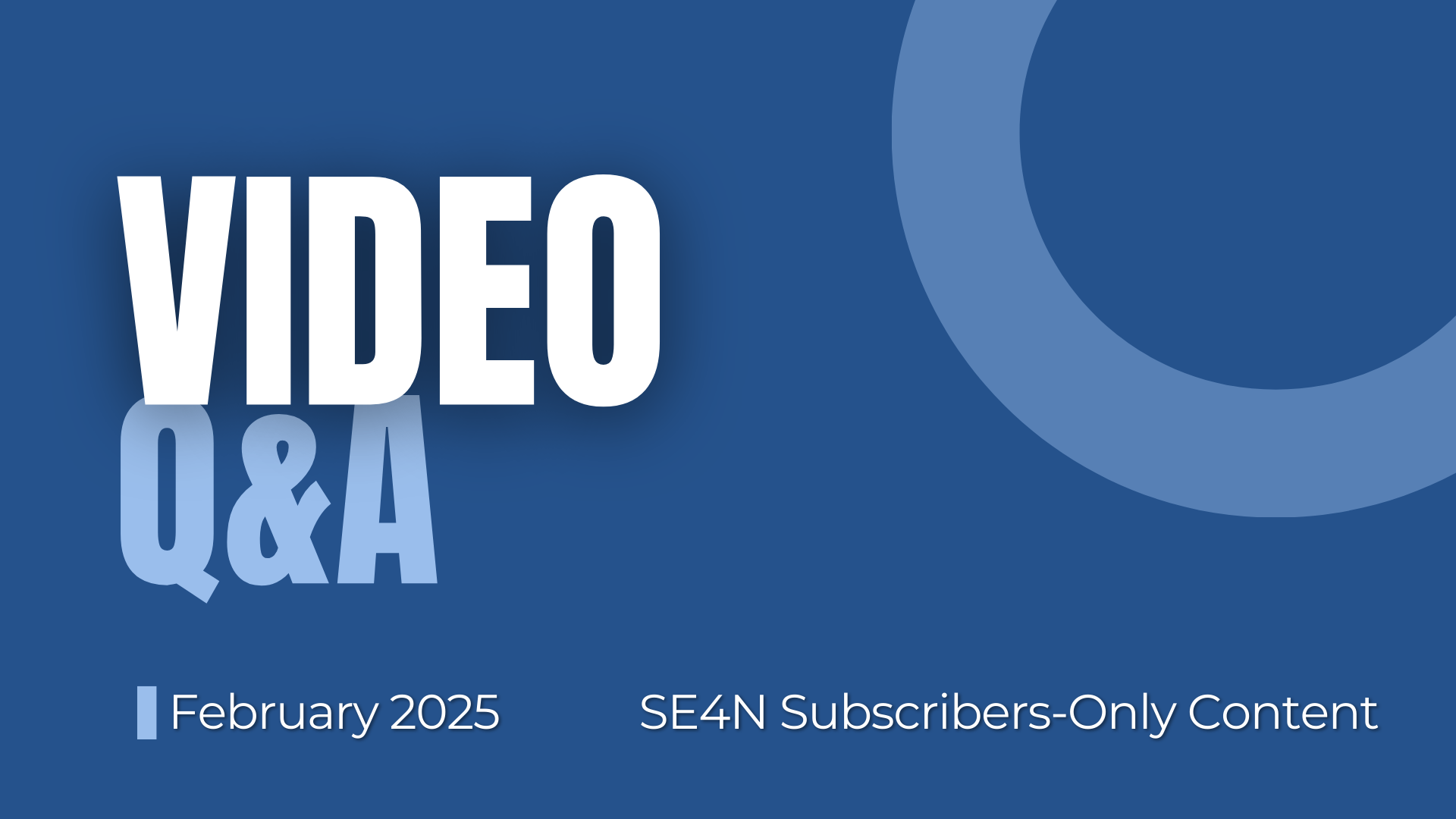
VIDEO Q&A for Subscribers: February 2025
Ben and Mike answer questions from subscribers about how to navigate a financial environment in which grand funding is uncertain, whether people under 18 years old can serve on a nonprofit Board of Directors, whether membership dues are treated as donations or fees for services, and whether a last-minute item can be added to the Board meeting agenda.
![TEMPLATE: Model A Fiscal Sponsorship Agreement [SUBSCRIBERS-ONLY]](https://images.squarespace-cdn.com/content/v1/5e6ccadfb4659c1d51df14d5/4fa14f59-82ca-4661-a339-d889aabce3ec/noah-naf-qhfxY3X6JV0-unsplash.jpg)
TEMPLATE: Model A Fiscal Sponsorship Agreement [SUBSCRIBERS-ONLY]
This template fiscal sponsorship agreement is intended for relatively straightforward “Model A” fiscal sponsorship relationships, sometimes called “direct” or “comprehensive” fiscal sponsorship. This sample document covers key terms such as the fiscal sponsor’s variance powers, the project leader's role as an employee of the fiscal sponsor, how assets are transferred upon termination, and more.
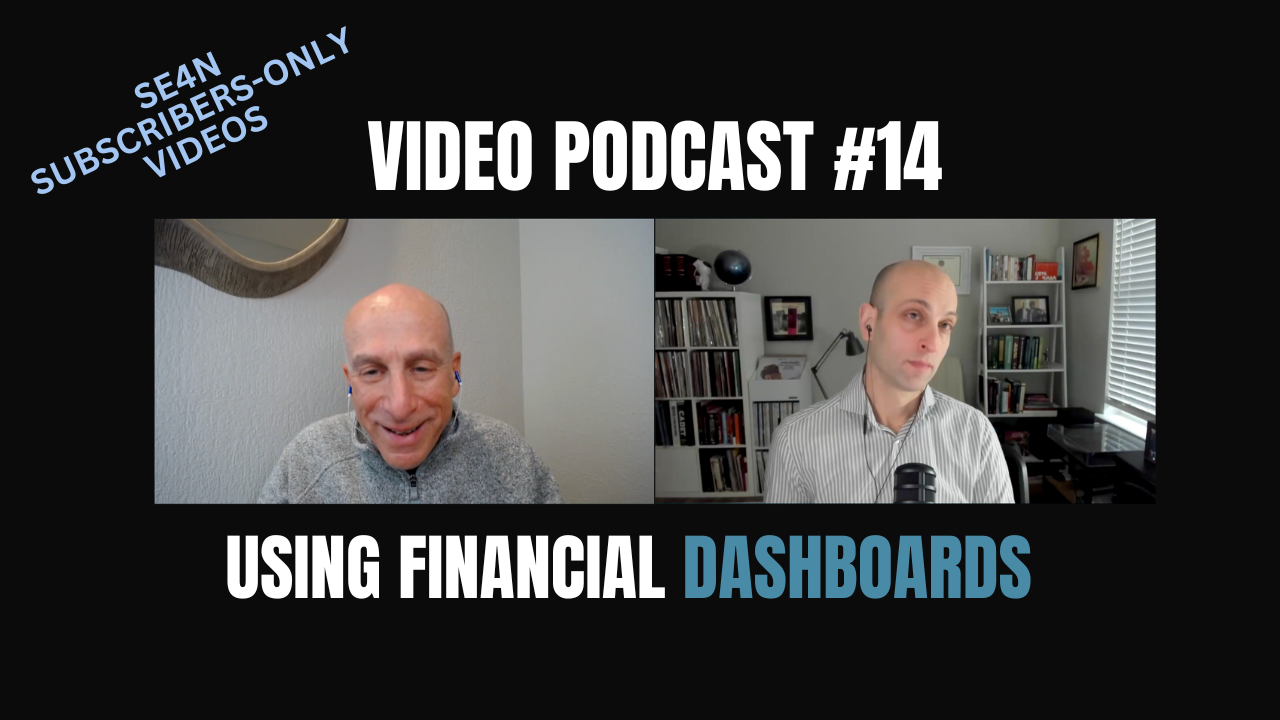
VIDEO PODCAST: Using Dashboards to Improve Understanding of Financial Reports
Ben and Mike discuss the role and purpose of financial dashboards for a nonprofit organization, how dashboards improve engagement with financial reports, the standard elements that make up a dashboard, and how dashboards can be optimized to best serve your organization.